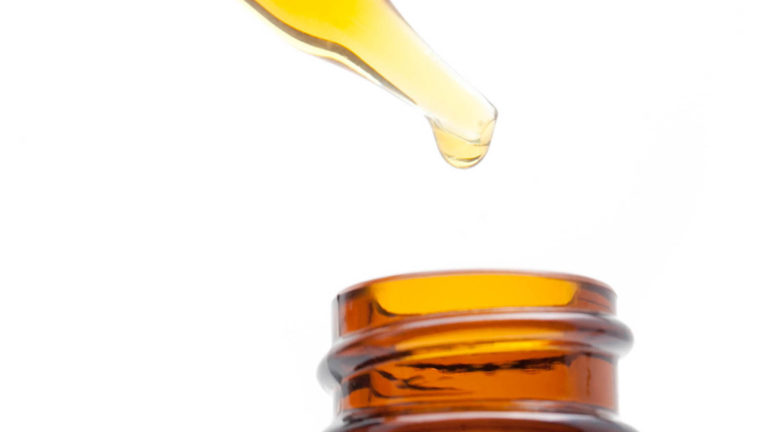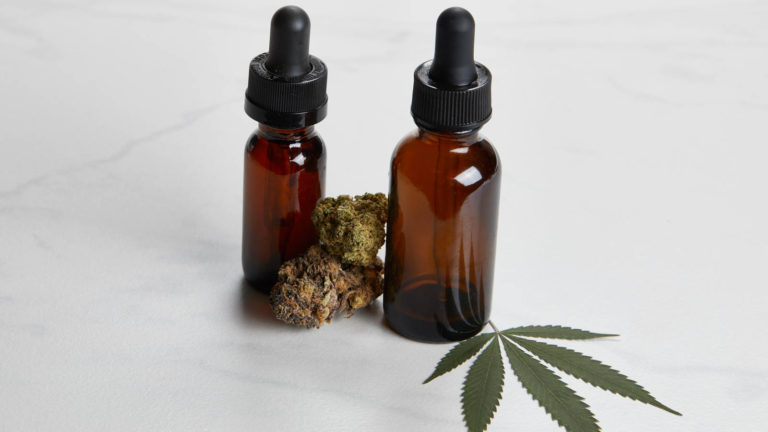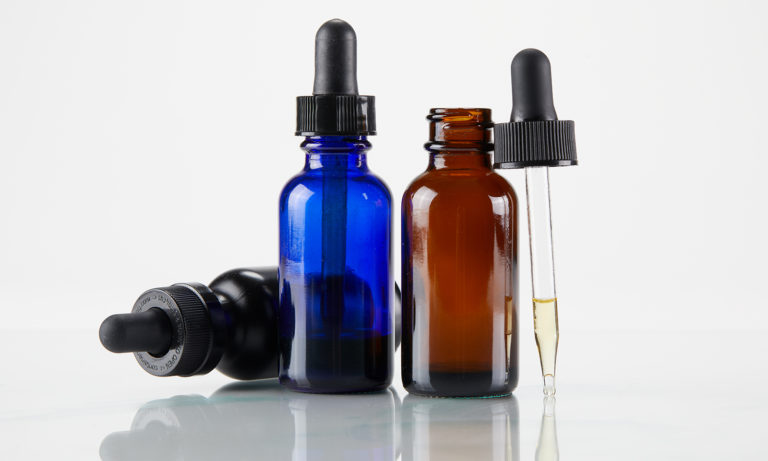The possession and the sale of hemp-derived products including cannabidiol (CBD) oil are currently legal in Washington, D.C. CBD derived from cannabis is also legal, but can only be purchased from D.C. regulated dispensaries with a medical marijuana card.
Cannabis was legalized in the District of Columbia in 1998 under Initiative 59, although it was not formally implemented until 2013.
Cannabis became legal for adult use under Initiative 71 in 2015 but is prohibited from commercial sale. The possession and use of cannabis and cannabis-derived products are illegal on federal land.
The District of Columbia has not expressed an explicit stance against the sale of CBD in food, beverages, animal feed, or as a dietary supplement. In July 2019, however, District Attorney Carl A. Racine co-signed a letter to the Food and Drug Administration (FDA) calling for further research, direction, and regulations regarding CBD products to improve consumer protection.
What is CBD?
CBD is a non-intoxicating cannabinoid found in cannabis and the second-most prominent in the plant after THC, which is primarily responsible for producing an intoxicating high. CBD can be sourced either from marijuana or hemp plants and has a wide range of potential therapeutic benefits.
 Photo by: Gina Coleman/Weedmaps
Photo by: Gina Coleman/WeedmapsImage lightbox

To date, researchers have identified a number of potential applications linked to CBD, including anti-inflammatory, analgesic, anti-anxiety, and anti-seizure properties. Further, the chemical has shown promise in treating numerous health conditions, including seizure disorders, mood disorders such as depression, anxiety, and psychosis, chronic pain, and many more.
Most raw cannabis strains on the market today contain small amounts of CBD, especially compared with THC. But since the cannabinoid has gained considerable attention for its wide range of purported therapeutic benefits, more high-CBD strains have recently been cultivated.
Why is CBD sometimes illegal?
All types of cannabis, including hemp strains that don't produce enough THC to cause intoxication, were considered illegal under the Federal Controlled Substances Act of 1970. The law categorized all cannabis as Schedule 1, which defined the plant as a highly addictive substance with a high potential for abuse and no accepted medical use.
The 2018 Farm Bill re-classified hemp as an agricultural commodity and made its cultivation federally legal. Further, the act removed some forms of cannabis from Schedule 1 status by creating a legal distinction between hemp and marijuana. Hemp is cannabis with less than 0.3% THC, and marijuana refers to cannabis with more than 0.3% THC. This distinction in federal law effectively legalized CBD that is derived from cannabis with less than 0.3% THC, as long as it has been cultivated according to federal and state regulations.
 Photo by: Gina Coleman/Weedmaps
Photo by: Gina Coleman/WeedmapsImage lightbox

The 2018 Farm Bill legislation does not mean that CBD derived from hemp is universally legal throughout the United States. According to the Farm Bill, the Food and Drug Administration (FDA) has the power to regulate CBD product labeling, including therapeutic claims and the use of CBD as a food additive.
The FDA has declared that even hemp-derived CBD may not legally be added to food and beverages, or marketed as a dietary supplement. Although the organization has begun to re-evaluate some of its stances on legal CBD products, the FDA has not revised its regulations. The agency also has been strict in its position against any labeling that could be perceived as a medical claim about CBD.
In addition to the federal regulation of CBD, the Farm Bill also gave states the option to regulate and prohibit the cultivation and commerce of CBD. States may regulate CBD in food, beverages, dietary supplements, and cosmetic products independently, even before the FDA finalizes its policies.
Washington, D.C. CBD laws
To date, no specific industrial hemp legislation has been introduced in the District of Columbia. Despite the passing of the 2018 Farm Bill, the district has yet to roll out an industrial hemp program.
In line with the 2018 Farm Bill, products derived from industrial hemp are legal for sale in Washington D.C. on the provision that their THC concentration that does need exceed 0.3% by weight. In July 2019, District Attorney Carl A. Racine co-signed a document requesting clear FDA guidelines for the manufacturing and sale of CBD.
Cannabis is legal in the District of Columbia for medicinal and adult use. Cannabis was legalized in the District of Columbia in 1998 under Initiative 59, although it wasn't formally implemented until 2013. Patients with medicinal marijuana cards can purchase cannabis-derived CBD from regulated dispensaries.
Cannabis became legal for adult use for individuals 21 years of age or older under Initiative 71 in 2015. Initiative 71 did not, however, make any provision for the sale of cannabis. The possession and use of cannabis and cannabis-derived products is additionally illegal in public places. The District of Columbia is currently working towards legalizing the commerce of recreational cannabis with the Safe Cannabis Sales Act of 2019.
Licensing requirements for CBD
Washington D.C. does not currently have an established industrial hemp program. There is no legislation specific to the licensing, growing, testing, or manufacturing of industrial hemp.
There are also no licensing requirements for retailers selling hemp-derived CBD products, including CBD oil. The Safe Cannabis Sales Act of 2019 has, however, proposed labeling requirements for products derived from cannabis.
Washington D.C. CBD possession limits
Hemp and hemp-derived products, including CBD oil, are legal in Washington, D.C, and there are no established or enforced possession limits. The Safe Cannabis Sales Act of 2019 has proposed a limit of 72 ounces of a cannabinoid product in liquid form per day, though this legislation has not yet passed.
CBD derived from cannabis is subject to possession limits. While these have not been explicitly articulated, there are possession limits clearly stated for cannabis. Individuals are allowed up to two ounces of cannabis or less. Those with more than two ounces in their possession may be charged with a misdemeanor, imprisoned for up to 6 months, and fined a maximum of $1000.
Where to buy CBD in Washington D.C.
Washington D.C. consumers can purchase hemp-derived CBD products from CBD-specific stores and health shops. When purchasing from a storefront, particularly if the store specializes in CBD, you can receive guidance from an employee. Explain what you're looking for, your reasons for consuming CBD, and they can point you in the right direction.
 Photo by: Gina Coleman/Weedmaps
Photo by: Gina Coleman/WeedmapsImage lightbox

D.C. residents can also buy hemp-derived CBD online, usually through specific brands' websites. You can also find verified CBD brands on Weedmaps. Reputable brands will generally provide you with essential product details, including the form of the CBD (such as oil, capsules, topicals, tinctures, etc.), the quantity of CBD the product contains, the other chemicals or ingredients present in the product, and more.
CBD derived from cannabis can only be purchased from a D.C. regulated dispensary with a medical marijuana card.
While many online checkout systems support US-based CBD sellers, some companies like Paypal consider CBD a “restricted business” and don't support online sales. Confirm the websites' checkout system before purchasing CBD online.
How to read CBD labels and packaging
The 2018 Farm Bill shifted the oversight of hemp and hemp-derived products from the U.S. Department of Justice (DOJ) to the U.S. Food and Drug Administration (FDA). The FDA does not presently allow CBD-infused food, drinks, or dietary supplements to be sold, and hasn't yet provided regulations for hemp-derived CBD products.
Still, the agency warns that regulations in flux still require companies to make legitimate claims on their labels. Buyers should nonetheless approach CBD products with caution. A CBD product should clearly state what kind of CBD is used.
Full-spectrum CBD oil means the extract contains cannabis-derived terpenes and trace amounts of cannabinoids such as THC. Broad-spectrum also includes other cannabis compounds but has had THC removed during the processing phase. CBD isolate is a pure crystalline powder containing only CBD.
Most reputable CBD producers typically include the following information on their CBD product labels:
- Amount of active CBD per serving.
- Supplement Fact panel, including other ingredients.
- Net weight.
- Manufacturer or distributor name.
- Suggested use.
- Full-spectrum, broad-spectrum, or isolate.
- Batch or date code.

